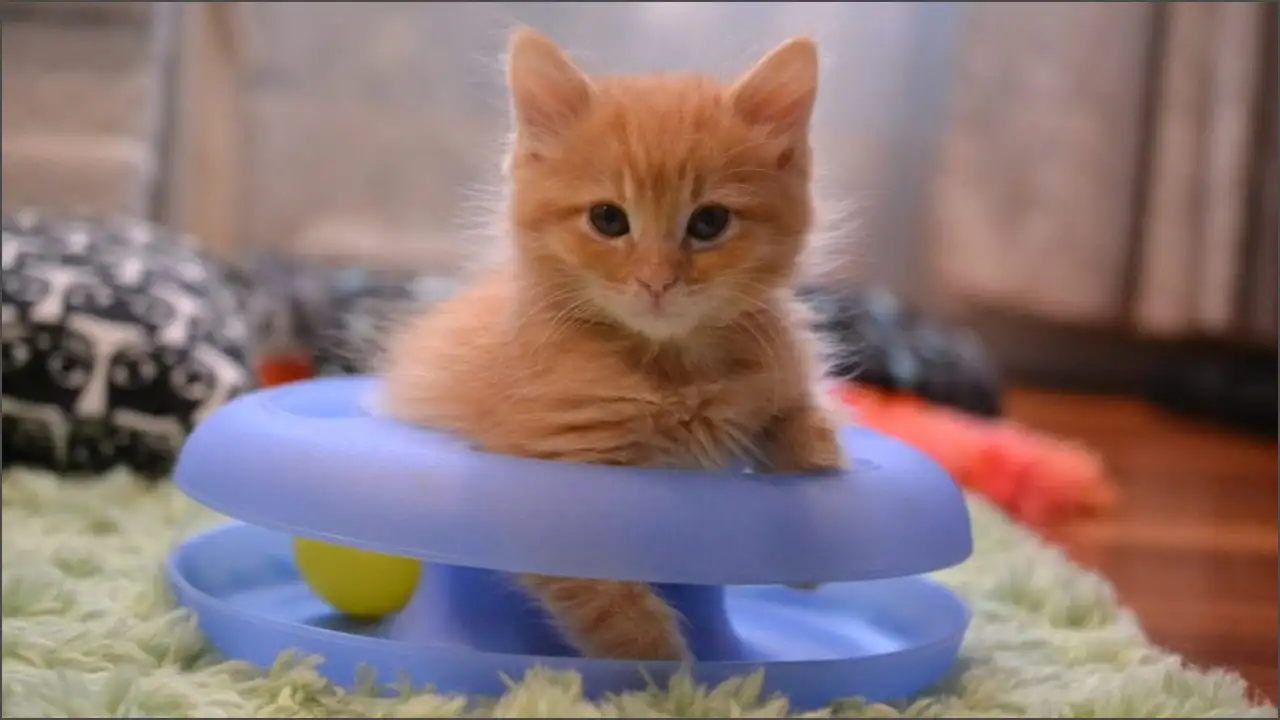Welcome to the infoguide for kittens llblogpet, your one-stop resource for raising happy and healthy kittens. Bringing a kitten into your life is exciting, but it also comes with responsibility. From preparing your home to learning how to feed, train, and bond with your new furry friend, there is so much to discover.
This infoguide for kittens llblogpet is written to help you through every step with practical advice, expert-backed tips, and easy-to-follow steps. Whether you’re a first-time cat parent or already have feline experience, this complete guide will make your kitten’s transition smooth and joyful.
Preparing Your Home for a Kitten: Infoguide for Kittens llblogpet
Before your kitten arrives, prepare your space to make it both safe and comfortable. Kittens are playful explorers who can get into anything, so it’s essential to kitten-proof your home.
Kitten-Proofing Checklist
-
Secure Electrical Cords: Cover or tuck away cords to prevent chewing accidents.
-
Remove Toxic Plants: Avoid plants like lilies, poinsettias, and philodendrons, which are poisonous to cats.
-
Block Small Spaces: Seal gaps under furniture or appliances where kittens might hide or get stuck.
-
Provide Essentials: Set up a litter box, scratching post, cozy bed, food bowls, and water dishes before bringing your kitten home.
Creating a kitten-friendly environment gives your pet a sense of comfort and safety while reducing anxiety. When your home is ready, your kitten will settle in faster and feel right at home.
Nutrition and Feeding Essentials
Healthy nutrition is the foundation of a strong, growing kitten. Since kittens develop quickly, they need food that’s rich in protein, vitamins, and minerals.
Feeding Guidelines
-
Milk Replacement: If your kitten is younger than eight weeks and not nursing, use a kitten milk replacer. Never give cow’s milk, as it can upset their stomach.
-
Weaning Stage (4–8 Weeks): Start introducing soft, wet kitten food while gradually reducing formula.
-
Solid Food (8+ Weeks): Offer high-quality dry or wet kitten food that’s made specifically for their growth needs.
-
Feeding Frequency: Kittens under six months old should eat three to four small meals daily.
Always keep fresh water available. Avoid giving human foods such as onions, garlic, chocolate, or dairy, which can be toxic to cats. A balanced diet supports strong bones, a shiny coat, and steady growth.
Health and Veterinary Care: Infoguide for Kittens llblogpet
Your kitten’s health begins with early veterinary care. Schedule your first vet visit within a few days of adoption to ensure your kitten is in good shape and to plan vaccinations.
Vaccinations
-
Core Vaccines: Protect against common feline diseases like distemper, herpesvirus, and calicivirus.
-
Optional Vaccines: Depending on your kitten’s lifestyle, your vet may suggest rabies or feline leukemia vaccines.
Parasite Prevention
Kittens are often born with worms, so deworming is essential. Flea prevention treatments should also start early, especially if your kitten goes outdoors or lives with other pets.
Spaying or Neutering
Most veterinarians recommend spaying or neutering between four and six months of age. This helps prevent unwanted litters and can reduce behaviors such as spraying or aggression.
Regular vet visits, vaccines, and parasite control will keep your kitten healthy for years to come.
Litter Training
Litter training is usually simple because kittens naturally seek out soft places to eliminate. Still, some guidance helps.
Tips for Litter Training
-
Place your kitten in the litter box after meals and naps to encourage use.
-
Choose an unscented, clumping litter that’s gentle on their paws.
-
Keep the litter box clean and scoop daily.
-
Never punish accidents. Instead, reward your kitten when they use the litter box correctly.
With patience and consistency, most kittens become litter-trained within a few weeks.
Socialization and Play
The early weeks of kittenhood shape how your cat behaves for life. Positive socialization builds confidence and friendliness.
Effective Socialization Strategies
-
Handle your kitten often so they get comfortable with touch.
-
Let them experience everyday sounds like vacuum cleaners, TVs, or doorbells to reduce fear later.
-
Introduce other pets slowly and always supervise the first few meetings.
Playtime is also essential. Toys such as feather wands, toy mice, and climbing posts provide exercise and mental stimulation. Regular play helps release energy and strengthens your bond.
Grooming and Hygiene
Even though kittens groom themselves, introducing them to a grooming routine early makes future care easier.
Grooming Essentials
-
Brushing: Use a soft brush to remove loose fur and prevent mats.
-
Bathing: Bathe only if necessary with warm water and kitten-safe shampoo.
-
Nail Clipping: Trim nails every two or three weeks using a proper cat nail clipper.
-
Ear Cleaning: Gently wipe the inside of the ears with a vet-approved solution if dirt builds up.
Regular grooming keeps your kitten clean, reduces shedding, and gives you a chance to check for fleas, cuts, or skin issues.
Understanding Kitten Behavior
Kittens are curious, playful, and sometimes mischievous. Understanding their natural instincts helps you manage their behavior.
Common Kitten Behaviors
-
Pouncing and Scratching: These mimic hunting skills. Provide scratching posts and toys to channel this energy.
-
Biting: Offer chew toys instead of using your hands during play.
-
Climbing: Cat trees or wall shelves help satisfy their instinct to climb and observe their surroundings.
By guiding these behaviors early, you help your kitten develop positive habits and prevent unwanted actions later.
Training Basics
The training strengthens your bond and helps your kitten learn good manners.
Training Techniques
-
Use Positive Reinforcement: Reward your kitten with treats or affection for good behavior.
-
Redirect Bad Habits: If your kitten scratches furniture, move them to their scratching post.
-
Teach Simple Commands: With patience, kittens can learn cues like “come” and “sit.”
Short, consistent training sessions make learning fun and help your kitten understand what you expect.
Enrichment and Mental Stimulation
Kittens are intelligent and need daily activities to stay happy. Without stimulation, they can get bored and destructive.
Enrichment Ideas
-
Interactive Toys: Use laser pointers, feather wands, or puzzle feeders to challenge their minds.
-
Safe Outdoor Exploration: A harness or enclosed patio lets them enjoy nature safely.
-
Climbing Structures: Cat trees encourage exercise and satisfy their love of heights.
-
Foraging Games: Hide small treats around the house for them to find.
Interactive play keeps your kitten active, improves coordination, and prevents stress-related issues.
Transition to Adulthood
Around twelve months, your kitten begins transitioning into adulthood. This stage brings physical and behavioral changes.
Key Changes
-
Diet: Switch from kitten food to adult cat food gradually to avoid stomach upset.
-
Behavior: Expect calmer behavior but continued playfulness.
-
Health: Schedule yearly vet visits for vaccinations, weight checks, and dental exams.
This new phase marks the start of a long, loving companionship between you and your cat.
Common Health Concerns in Kittens
Even with excellent care, kittens may experience a few health issues. Knowing what to look for helps you act quickly.
Typical Conditions
-
Respiratory Infections: Watch for sneezing, nasal discharge, or watery eyes.
-
Parasites: Fleas, worms, and ear mites are common but treatable.
-
Digestive Upset: Diarrhea or vomiting can result from sudden diet changes or infections.
-
Feline Distemper: A serious viral disease prevented by timely vaccination.
If you notice any unusual behavior, appetite loss, or lethargy, contact your vet immediately. Early treatment makes all the difference.
Building a Strong Bond
Your relationship with your kitten is built on trust, love, and consistency.
Bonding Strategies
-
Spend quality time each day playing, cuddling, and talking softly to your kitten.
-
Respect their space and allow them to approach you on their terms.
-
Provide a calm, secure environment where they feel safe.
-
Reward positive interactions with treats or gentle affection.
When your kitten feels loved and safe, they’ll grow into a confident, affectionate adult cat who brings joy to your home.
Conclusion
Raising a kitten is a heartwarming adventure filled with learning and love. From preparing your home and providing proper nutrition to grooming, training, and socializing, each step shapes your kitten’s growth and happiness. By following the infoguide for kittens llblogpet, you’ll give your furry friend the care, comfort, and confidence they need to thrive.
With patience and devotion, your tiny kitten will blossom into a lifelong companion and cherished member of your family.
For more informative articles, visit our site daily.

